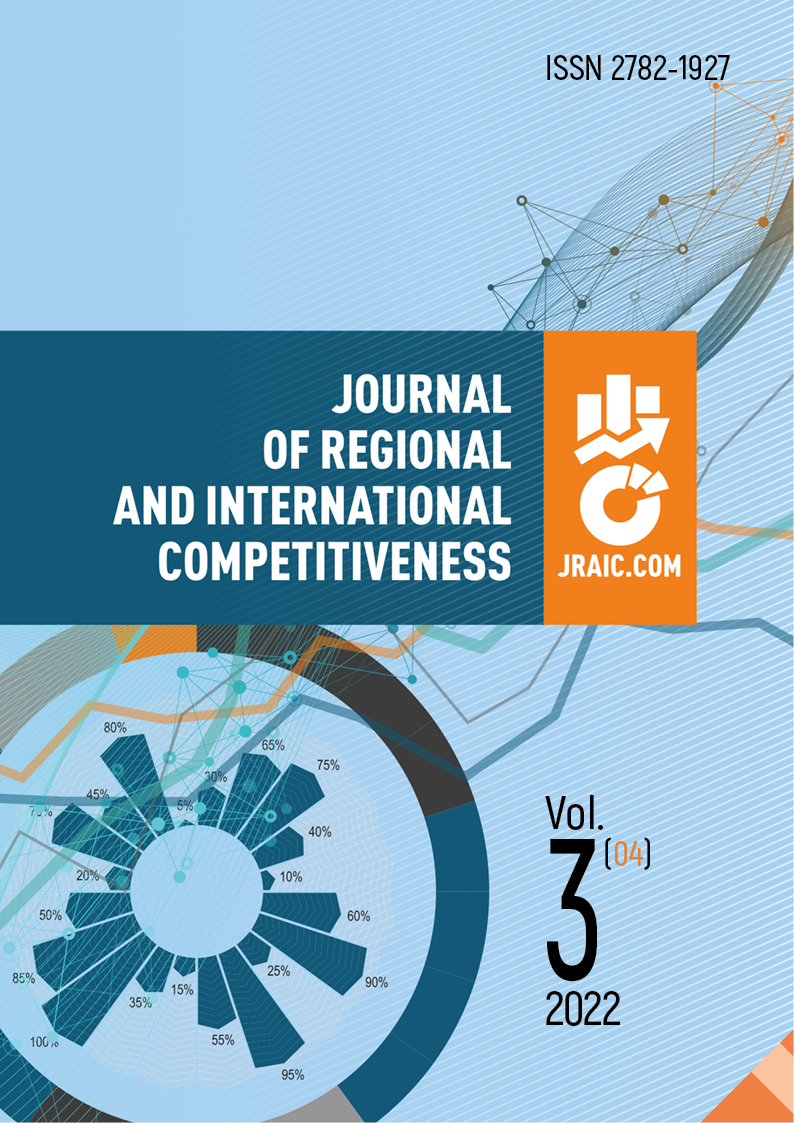Moscow, Russian Federation
Moscow, Moscow, Russian Federation
Novosibirsk, Novosibirsk, Russian Federation
The COVID-19 pandemic and its consequences become a de facto catalyst for digitalization in all areas of the economy. Also they accelerate the development of digital business. Companies have to adapt their business processes and institutional infrastructure to work online. The results of the author’s analysis were the provisions that the COVID-19 pandemic and its consequences contributed to the transition from targeted digital transformation of business models and business processes to their systemic digitalization. Digital transformation contributed to the formation and development of creative digital business, which relies on digital platforms and the widespread use of digital technologies, especially artificial intelligence. In modern conditions, transnational digital corporations of the United States and China act as drivers for the development both the digital economy and digital business. Corporations compete for leadership in the development of digital technologies, in particular, artificial intelligence use.
digitalization, digital transformation, digital business, digital platforms, artificial intelligencee.
1. Executive Order on Russia’s national development goals through 2030. (2020). Retrieved from http:// en.kremlin.ru/events/president/news/63728 (in Russian).
2. Freeman, C. (2002). Continental, National and Sub-national Innovation Systems–Complementarity and Economic Growth. Research Policy, 31(2), 191–211. DOI:https://doi.org/10.1016/S0048-7333(01)00136-6.
3. Carlsson, B. (2006). Internationalization of innovation systems: A survey of the literature. Research Policy, 35(1), 56–67.
4. Cooke, P., & de Laurentis, C. (2010). Platforms of innovation: Some examples In P. Cooke, C. de Laurentis, S. MacNeill, C. Collinge (Eds.). Platforms of Innovation: The dynamics of the flows of new industrial knowledge (pp. 271-310). London: Edward Elgar Publishing House.
5. Baumol, W. (2003). Prize Lecture. Retrieved from https://www.e-award.org/wp-content/uploads/William-J-Baumol-Prize-Lecture.pdf
6. Klimanov, D., & Tretyak, O. (2019). Linking business model research and marketing: New network-based approach to business model analysis. Journal of Business and Industrial Marketing, 34(1), 117–136.
7. Digital Attaché Program Information. (2016). Retrieved from https://www.trade.gov/digital-attache-program-0
8. Digital Platforms: A Brief Introduction. (2021). Retrieved from https://www.bmc.com/blogs/digital-platforms/#
9. Geliskhanov, I. Z., & Yudina, T. N. (2018). Digital platform: a new economic institution. Quality–Access to Success, 19(S2), 20–26.
10. FTC. (2020). FTC Sues Facebook for Illegal Monopolization. Retrieved from https://www.ftc.gov/ news-events/press-releases/2020/12/ftc-sues-facebook-illegal-monopolization
11. Kudrin told where the Russians should go to work. (2021). Retrieved from https://news.mail.ru/economics/48185549/?frommail=1&exp_id=943 (in Russian).
12. Xiaomi is ditching humans in favor of robots. (2021). Retrieved from https://gadgettendency.com/ xiaomi-is-ditching-humans-in-favor-of-robots-the-company-is-building-a-fully-robotic-smartphone-factory/
13. Simachev, Y., Fedyunina, A., Yurevich, M., Kuzyk, M., & Gorodny, N. (2021). New Strategic Approaches to Gaining from Emerging Advanced Manufacturing Markets. FORSAYT, 15(3), 6–21 (in Russian).
14. Sberbank. (2023). Sberbank digital ecosystem. Retrieved from https://www.sberbank.com/ru/eco (in Russian).
15. Obukhova, E. (2021). Head of Marketplaces. Expert, (31–34), 78–79 (in Russian).
16. Online clubbers drive booze sales in China. (2020). Retrieved from https://www.warc.com/newsandopinion/news/online-clubbers-drive-booze-sales-in-china/43463
17. AI Russia. (2023). AI Russia Works. Retrieved from https://ai-russia.ru/library/ (in Russian).
18. UNCTAD. (2023). How COVID-19 triggered the digital and e-commerce turning point. Retrieved from https://unctad.org/news/how-covid-19-triggered-digital-and-e-commerce-turning-point




















